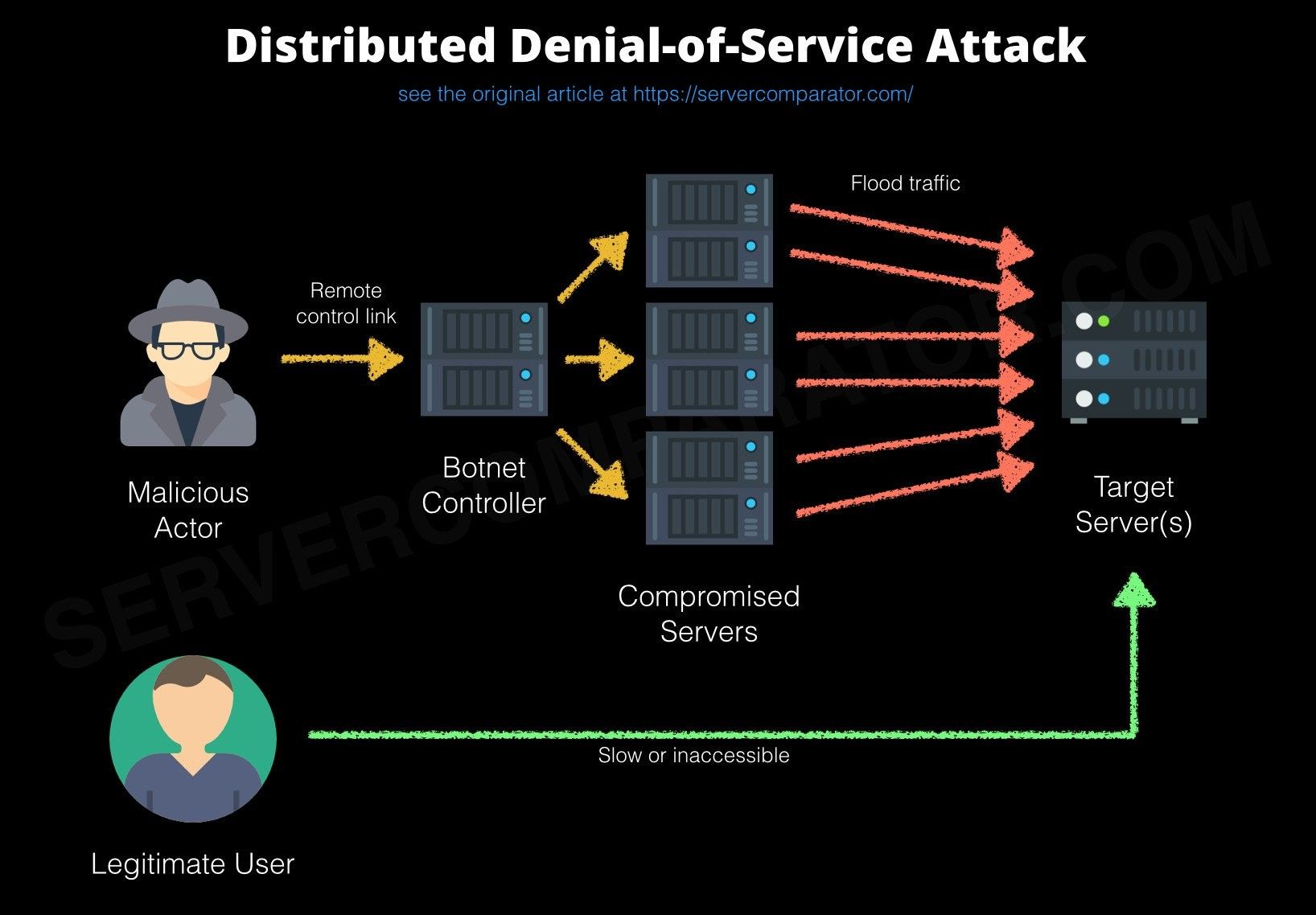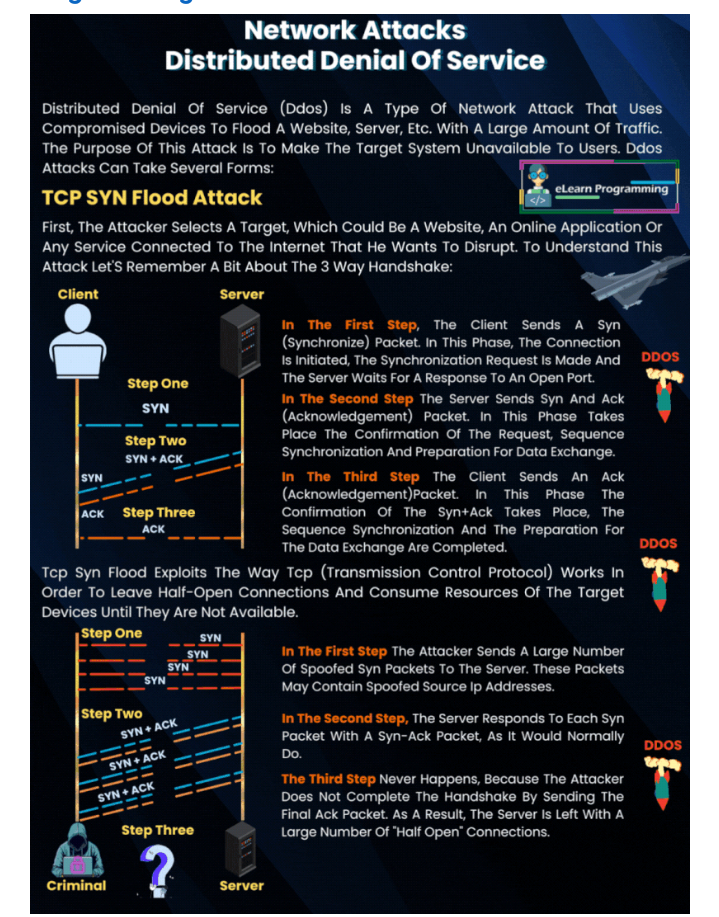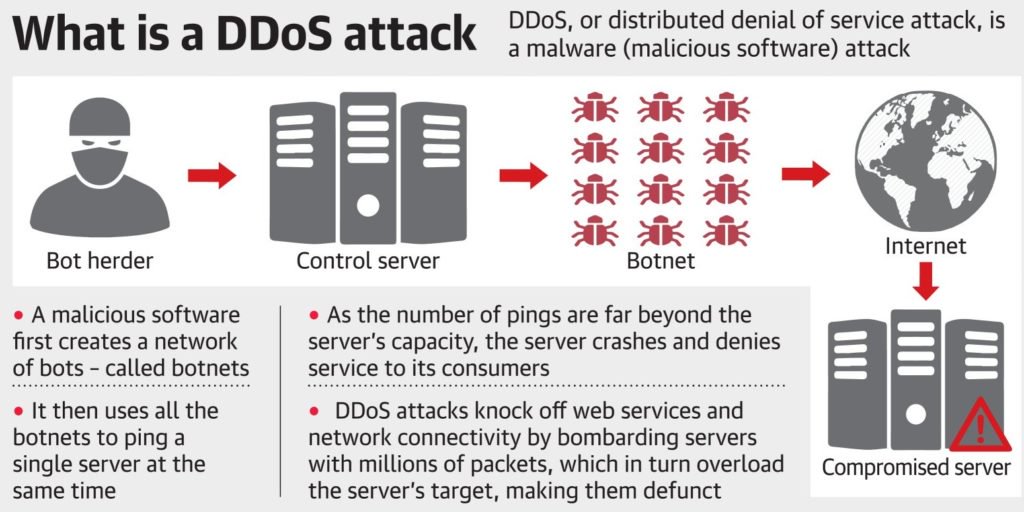Network Attack Distributed Denial of Services
- 12 Apr, 2024 - 12 Apr, 2024
- 12 Apr, 2024
- Cameroon, Bamenda

Event Description
Protecting Your Network: Understanding and Defending Against Distributed Denial of Service (DDoS) Attacks
Network security is a critical concern for businesses in today's interconnected digital landscape. Among the various threats they face, Distributed Denial of Service (DDoS) attacks can cause significant disruption and financial losses. Understanding the nature of DDoS attacks and implementing proactive defense measures is crucial to safeguarding your network and ensuring uninterrupted operations. In this post, we will explore the concept of DDoS attacks, their impact, and effective strategies to defend against them.
- What is a DDoS Attack?
A DDoS attack occurs when multiple compromised devices flood a target network or server with an overwhelming amount of traffic, rendering it inaccessible to legitimate users. The attackers exploit vulnerabilities in network resources to exhaust their capacity, causing disruption in service availability. - The Impact of DDoS Attacks:
DDoS attacks can have severe consequences for businesses, including:
- Loss of revenue: Downtime resulting from a successful DDoS attack can lead to financial losses, especially for organizations heavily reliant on online activities.
- Damage to reputation: Extended periods of service unavailability can negatively impact a company's reputation and erode customer trust.
- Operational disruptions: DDoS attacks can disrupt normal business operations, affecting productivity and customer satisfaction.
- Increased security risks: DDoS attacks may serve as a distraction while attackers attempt to breach the network's security defenses or steal sensitive data.
3. Strategies to Defend Against DDoS Attacks:
To effectively mitigate the impact of DDoS attacks, consider implementing the following measures:
- DDoS protection services: Collaborate with reputable DDoS protection service providers who specialize in detecting and mitigating attacks, ensuring that traffic is filtered and legitimate requests reach your network.
- Traffic monitoring and anomaly detection: Deploy robust monitoring systems to identify and respond promptly to abnormal traffic patterns that may indicate an ongoing DDoS attack.
- Scalable network infrastructure: Ensure your network infrastructure is designed to handle sudden surges in traffic. Redundant servers, load balancers, and adequate bandwidth can help distribute and absorb traffic during an attack.
- Content Delivery Network (CDN): Utilize a CDN service to distribute content across multiple servers and data centers, reducing the impact of a DDoS attack by distributing traffic geographically.
- Rate limiting and traffic filtering: Implement rate limiting mechanisms and traffic filtering rules using firewalls or intrusion prevention systems (IPS) to prevent excessive requests and block suspicious traffic.
- Incident response plan: Develop a comprehensive incident response plan specifically tailored to DDoS attacks. It should include predefined communication channels, roles, and responsibilities, as well as coordination with DDoS protection service providers.
- Collaboration with ISPs: Establish relationships with your internet service provider (ISP) and collaborate with them during an attack. ISPs may offer specialized DDoS mitigation services or assist in rerouting traffic to mitigate the impact.
- Regular security updates: Keep your network devices and software up to date with the latest security patches and updates to prevent attackers from exploiting vulnerabilities.
- Network segmentation: Segment your network into separate subnets or VLANs to isolate critical systems and services, limiting the impact of a DDoS attack and preventing its spread.
- Employee education: Educate your employees about DDoS attacks, their implications, and the importance of reporting any suspicious activity. Promote good security practices and vigilance to identify signs of an ongoing attack.
Protecting your network from DDoS attacks is a critical aspect of maintaining business continuity and safeguarding your digital assets. By understanding the nature of DDoS attacks and implementing proactive defense strategies, you can significantly reduce the impact of such attacks and ensure uninterrupted availability of your network resources. Stay vigilant, collaborate with experts, and regularly review and enhance your network security measures to stay one step ahead of potential threats.

